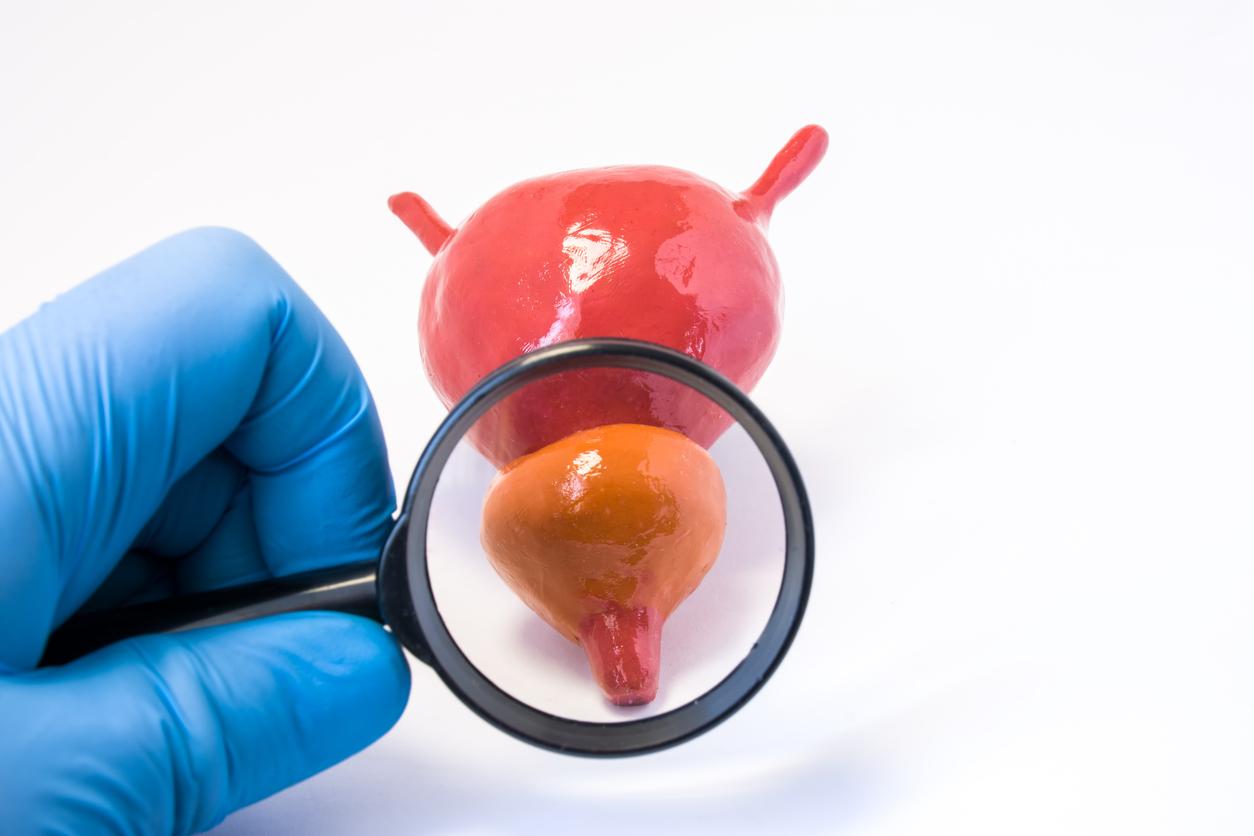A pathology which is fully in line with male pathologies, prostate cancer affects more than 50,000 men each year in France, or one in seven men.

- Prostate cancer still causes “too many deaths”, deplores Professor Romain Mathieu, with 8,000 to 10,000 deaths each year in France.
- However, early diagnosis offers a good prognosis to the patient, especially since today, medical progress allows better diagnosis of the characteristics of the cancer, “to manage it optimally”.
- The diagnosis is initially based on the discovery of an anomaly in the PSA measurement in the blood or during a rectal exam. Further examinations with a urologist then allow it to be definitively installed or not.
For the second year in a row, the French Association of Urology (AFU) is devoting the month of November to raising men’s awareness of male ailments in order to free up speech on these taboo subjects. Thus, during a press conference organized this Wednesday, November 6, 2024, Professor Romain Mathieu, urological surgeon in Rennes, took stock of the latest knowledge concerning prostate cancer.
Personalized prostate cancer screening
Prostate cancer does “still too many deaths”, deplores Professor Romain Mathieu, with 8,000 to 10,000 deaths each year in France, or practically one death every hour. However, it is a cancer which, “when diagnosed at an early stage, has a good prognosis”. Screening is first done with the general practitioner who can offer a rectal examination and a PSA blood test every year from the age of 50. “When there is cancer, you may feel a small nodule in the prostate which will eventually increase the PSA level in the blood. But be careful, just because the PSA level is high does not necessarily mean there is prostate cancer. When an anomaly is detected, on one side or the other, the patient must be taken to a urologist who will direct him to the cause of this anomaly which can also be benign enlargement of the prostate or even inflammation.”
“We have entered the era of personalized medicine for prostate cancer”, he continues. On the one hand, the populations most at risk are better targeted thanks to personalized screening based on the characteristics of the individual (age, history of cancer in the family, ethnic origin, etc.) and the PSA dosage, but also the contribution of MRI imaging and new targeted biopsy techniques. On the other hand, treatments, which have greatly improved in recent years, have also been adapted to the patient.
Active surveillance, total prostatectomy… care adapted to the patient
“There is great progress in treatment, whatever the stage of cancer”, he adds. “We diagnose and characterize it better to take care of it optimally.” In fact, the doctor explains on a case-by-case basis:
- for a localized stage with a less aggressive cancer, the patient will be under active surveillance (PSA measurement, digital rectal examination, MRI) without aggressive treatment in order to postpone possible side effects of the treatments over time;
- for more aggressive cancer, there are several possibilities: total prostatectomy (with robotic assistance) and/or radiotherapy;
- for metastatic stages, with other organs affected (notably the lymph nodes or bones), the patient will follow hormonal therapy to reduce the testosterone level and thus reduce the vitality of the cancer cells: “new hormone therapies are very effective and improve patient survival”, specifies Professor Mathieu.
“The knowledge acquired in a few years also relates to the quality of life of patients in order to live better during treatments and after them.”, adds the AFU.

















